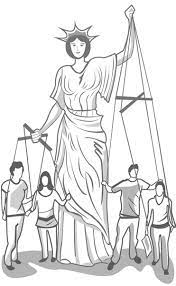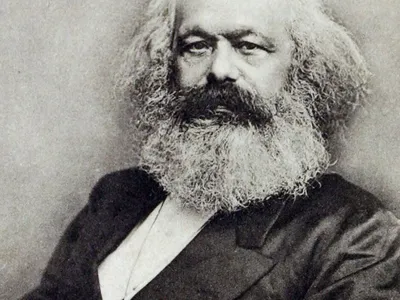1a: How do different sociologists interpret society? (copy)
0.0(0)
0.0(0)
Card Sorting
1/18
Earn XP
Description and Tags
Study Analytics
Name | Mastery | Learn | Test | Matching | Spaced | Call with Kai |
|---|
No study sessions yet.
19 Terms
1
New cards
two main approaches to sociology
* structuralist
* interpretivist
* interpretivist
2
New cards

structuralist beliefs
* Approaches on large-scale macro social structures
* focus on institutions rather than individuals
* They see society as a set of structures in where individuals have definite roles
* people’s social roles and actions people carry out are more important than their identity
* Sociologists use these theories to discover social structures that may be hidden from individuals
* Study the case study for Emile Durkheim
* According to structuralist approach, individuals have little freedom of thought or action. Though we may think we do but society controls our lives.
* individuals are puppets and hidden social forces make them behave a certain way.
* focus on institutions rather than individuals
* They see society as a set of structures in where individuals have definite roles
* people’s social roles and actions people carry out are more important than their identity
* Sociologists use these theories to discover social structures that may be hidden from individuals
* Study the case study for Emile Durkheim
* According to structuralist approach, individuals have little freedom of thought or action. Though we may think we do but society controls our lives.
* individuals are puppets and hidden social forces make them behave a certain way.
3
New cards
structuralist approach - case study
emile durkheim
4
New cards

interpretivist beliefs
Focuses on micro social structures rather than macro
* focuses on individuals rather than society
* Believe that individuals are in control and make society of what it is and can change society through their action
* People are born into particular societies and learn the norms and values of society but people don’t have to accept societal views and values change over time as people’s ideas change
* we can choose our own identities that are socially available to us and reject others. Labels carry different meaning for us. For ex: someone sees themselves through their religious identity. We may see people in terms of labels that they may accept or reject.
* Socially available labels: Sex or Gender identity, ethnic identity, age, social class, nationality, occupation, roles within family, member of a religion.
* study society from the level of the individual unlike structuralists
* we have the choice of how important our identity is. For ex: national identity, some people may be patriotic about it and others may not see their nationality important and identify strongly with religious or ethnic identity.
* Interpretivists believe our identity is not imposed by society. However structuralists argue.
* Identities bind us to certain social groups and way of behaving
* They used different research methods (qualitative) to discover what meanings people give to their actions and how they interpret the world around them.
* interpretivist Researchers try to understand how people see the world. For example: researching crime an interpretivist would want to know what the people involved had to say about what they did and not about what happened.
* focuses on individuals rather than society
* Believe that individuals are in control and make society of what it is and can change society through their action
* People are born into particular societies and learn the norms and values of society but people don’t have to accept societal views and values change over time as people’s ideas change
* we can choose our own identities that are socially available to us and reject others. Labels carry different meaning for us. For ex: someone sees themselves through their religious identity. We may see people in terms of labels that they may accept or reject.
* Socially available labels: Sex or Gender identity, ethnic identity, age, social class, nationality, occupation, roles within family, member of a religion.
* study society from the level of the individual unlike structuralists
* we have the choice of how important our identity is. For ex: national identity, some people may be patriotic about it and others may not see their nationality important and identify strongly with religious or ethnic identity.
* Interpretivists believe our identity is not imposed by society. However structuralists argue.
* Identities bind us to certain social groups and way of behaving
* They used different research methods (qualitative) to discover what meanings people give to their actions and how they interpret the world around them.
* interpretivist Researchers try to understand how people see the world. For example: researching crime an interpretivist would want to know what the people involved had to say about what they did and not about what happened.
5
New cards
How different theories on conflict and consensus create alternative sociological perspectives
sociologists have different views on society and social life, which are referred to as **perspectives** (ways of viewing social life in different points of views)/
6
New cards
consensus and conflict - **consensus (basic agreements on a set of shared values)**
* where people share values and there are no major disagreements between main groups
* possible only if people in the groups in a society have similar backgrounds such as wealth, status, and power.
* a society built on consensus is stable and harmonious. → free from conflicts
* values being shared may be based on religion, belief system or political ideas which would bring everyone together and make them feel a sense of belonging as their values are being accepted in society.
* suppression of minorities
* possible only if people in the groups in a society have similar backgrounds such as wealth, status, and power.
* a society built on consensus is stable and harmonious. → free from conflicts
* values being shared may be based on religion, belief system or political ideas which would bring everyone together and make them feel a sense of belonging as their values are being accepted in society.
* suppression of minorities
7
New cards
consensus and conflict - **conflict → disagreement with groups of different interests**
* social conflict occurs when major disagreements arise about issues such as wealth, status and power.
* major differences between people and their beliefs with no overall set of shared values
* unstable society
\
* major differences between people and their beliefs with no overall set of shared values
* unstable society
\
8
New cards
interpretivists - criticism
the debate of consensus and conflict does not apply to interpretivism as they focus on micro-scale and individuals than the overall nature of society → they can be criticised for not taking into account wider issues such as power.
9
New cards
functionalism
* based on the consensus view
* emphasises social functions and what function this aspect of society carries out that keeps the society stable. for ex:
\- The function of the school is to give people the skills they need for work which helps the economy
\- a function of families is to socialise children into the norms and values of society so the next generation has the same values
\- a function of jail, is to remove people from society who do not keep the laws and upset the stability of society
* related to the biological analogy of functionalists
* Most important perspective especially early and mid-20th century and how most sociologists thought societies worked
* Talcott parsons → main sociologist associated with functionalism
* emphasises social functions and what function this aspect of society carries out that keeps the society stable. for ex:
\- The function of the school is to give people the skills they need for work which helps the economy
\- a function of families is to socialise children into the norms and values of society so the next generation has the same values
\- a function of jail, is to remove people from society who do not keep the laws and upset the stability of society
* related to the biological analogy of functionalists
* Most important perspective especially early and mid-20th century and how most sociologists thought societies worked
* Talcott parsons → main sociologist associated with functionalism
10
New cards
biological analogy of functionalists
* human society is like the human body in that all parts of the human body have jobs to keep you healthy
* each part of society has functions that’ll help it survive
* if something goes wrong in one part of society, the other parts may be affected and something will need to change. For ex: to decrease crimes in society which could affect stability, to tackle it schools should be better at teaching people obey the law.
* each part of society has functions that’ll help it survive
* if something goes wrong in one part of society, the other parts may be affected and something will need to change. For ex: to decrease crimes in society which could affect stability, to tackle it schools should be better at teaching people obey the law.
11
New cards

marxism
* believes that conflicts in society are from social divide which takes form of strikes and other protests by the working class in the hope of a revolution
* believe that capitalism is the reason for an unstable society
* focus on the conflict between class
* 2 main classes:
* bourgeoisie
* proletariat
* Marxists agree with functionalists as society has different functions but they disagree with their values.
* social functions = ways for the bourgeoisie to stay in power
* inspired political movements: socialism and communism
* favour a radical social change to end exploitation
* Karl Marx → found marxism theory
* Marxists might say things opposite of what functionalists believe:
* schools ensure that some people fail and think that this is their own fault so they accept the low position in society
* mass media distracts people from what is actually is going on in society and make people interested in irrelevant things such a celebrity gossip.
* believe that capitalism is the reason for an unstable society
* focus on the conflict between class
* 2 main classes:
* bourgeoisie
* proletariat
* Marxists agree with functionalists as society has different functions but they disagree with their values.
* social functions = ways for the bourgeoisie to stay in power
* inspired political movements: socialism and communism
* favour a radical social change to end exploitation
* Karl Marx → found marxism theory
* Marxists might say things opposite of what functionalists believe:
* schools ensure that some people fail and think that this is their own fault so they accept the low position in society
* mass media distracts people from what is actually is going on in society and make people interested in irrelevant things such a celebrity gossip.
12
New cards
crtics of marxism
* it is impossible to have equal societies and this has led to greater oppression as people would not feel valued for their work as everyone is paid the same
* feminists argue on gender divide rather than social divide
* feminists argue on gender divide rather than social divide
13
New cards
modern marxist writers
neo-marxists
14
New cards
bourgeoisie
have power and exploits the working class. Only benefits them in a capitalist society
15
New cards
proletariat
are ‘wage slaves’ and have no choice but to work to survive and are never given full payment (taken as profit by ruling class). They're never paid of what they deserve .
16
New cards
Feminism
* emphasises conflict
* the fundamental division between two sexes: men and women then classes
* argue men control society in all aspects (patriarchal society). Relationships, families, work, education and so on. believe that men will always have more opportunities and recognition in society than women.
* Feminists research many aspects of why men get treated better in society. For example; girls tend to do a lot better in school but men end up getting better-paying jobs.
* fought for equality for many years. Can sometimes be seen as being anti-men but argue that equality brings benefits for men.
* 3 strands of feminism:
* liberal
* radical
* marxist
* the fundamental division between two sexes: men and women then classes
* argue men control society in all aspects (patriarchal society). Relationships, families, work, education and so on. believe that men will always have more opportunities and recognition in society than women.
* Feminists research many aspects of why men get treated better in society. For example; girls tend to do a lot better in school but men end up getting better-paying jobs.
* fought for equality for many years. Can sometimes be seen as being anti-men but argue that equality brings benefits for men.
* 3 strands of feminism:
* liberal
* radical
* marxist
17
New cards
liberal feminists
believe that major advancements have been made and more can be made through new advancements such as new laws and does not emphasise conflict
18
New cards
radical feminists
believe despite advancements, society remains patriarchal and men have more power but it is less obvious and radical changes are needed
19
New cards
marxist feminists
evaluate how class and gender work together to produce societal divisions in society